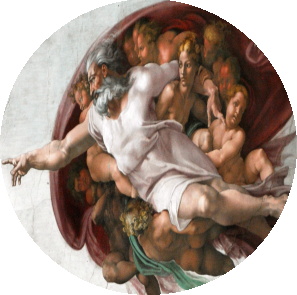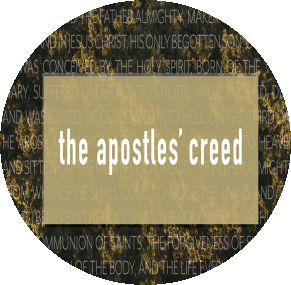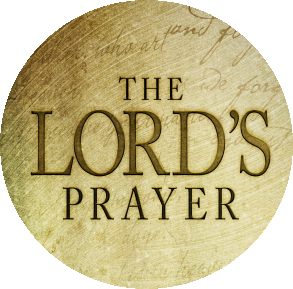I Believe in God- pt2

“But without faith it is impossible to please God. For he that cometh to God, must believe that he is, and is a rewarder to them that seek him.” (Hebrews 11:6).
The Bible declares God’s existence. It does not attempt to prove it. Certain things are so true that philosophers call them “properly basic.” They are so true that you can’t properly understand reality without them. From a biblical standpoint, the existence of God falls into that category.
Either you believe in God or you don’t. If you do, then you are in good company. According to a recent Fox News poll, 92% of those surveyed say they believe in God. Other polls in recent years have returned the same overwhelming numbers. Nine out of ten Americans say they believe in God. There are some atheists out there, and their numbers may be growing, but they are still a tiny minority. Most Americans believe in God, even if they can’t agree on what kind of God they believe in. If that’s true, then it may seem unnecessary to devote a Catechism lesson to the first phrase of the Apostles’ Creed, “I believe in God.” This may seem like a kindergarten lesson, a truth we learned when we were children many years ago. But I think it’s always dangerous to take our faith for granted. Maybe we don’t know everything we think we know.
Let’s unpack the phrase, “I believe in God,” by breaking it down into four statements.
First: “God is” is the central fact of the universe.
The very first verse of the Bible establishes this truth in these majestic and simple words: “In the beginning God created heaven, and earth.” (Genesis 1:1). These are the headwaters of divine revelation. Everything God wants us to know starts right here. This verse is a declaration—not an argument. A few years ago a famous speaker spoke a powerful message for 40 minutes on just two words: “God is.” He said it over and over again. He whispered it and he shouted it. He illustrated it, declared it, proclaimed it, and dared anyone to deny it. You wouldn’t think you could speak that long on just two words but he did, and when you think about it, you could speak a lot longer when your topic is as profound as “God is.” Once you get it settled in your heart that “God is,” a lot of other problems will be solved as well.
Second: All things owe their existence to God the Creator.
Because God is the Creator, he is also the owner of all things. If I make a toy boat, I can truly say, “This is mine. I made it and I own it.” Since God made us, he has the absolute right of ownership over us. He can do with us as he pleases. That’s not a popular topic in contemporary American life. We want to do our own thing, go our own way, live the way we want, do whatever we feel like doing, whenever we want to do it, and no one has the right to tell us what to do. But if God created us, he owns us. If he owns us, then we are accountable to him for everything we say and do. That’s not a happy thought for many people.
What does it mean to say, “I believe in God the Father Almighty, maker of heaven and earth?” Here is the answer: “I believe that God has created me and all that exists; that he has given and still preserves my body and soul, my eyes and ears, and all my members, my reason and all the power of my soul, together with food and raiment, home and family, and all my property; that he daily provides abundantly for all the needs of my life, protects me from all danger, and guards and keeps me from all evil; and that he does this purely out of fatherly and divine goodness and mercy, without any merit or worthiness within myself; for all which is good in me I am duty bound to thank, praise, serve, and obey God.”
Third: The truth about God has been made known to everyone.
This fact comes from Romans 1:19-20. “Because that which is known of God is manifest in them. For God hath manifested it unto them. For the invisible things of him, from the creation of the world, are clearly seen, being understood by the things that are made; his eternal power also, and divinity: so that they are inexcusable.” Twice in verse 19 Paul uses the word “manifested” to describe God’s revelation of himself to all mankind. Then in verse 20 he adds that the truth about God is “clearly seen” in nature. We can say it this way: Everyone knows there is a God, and the people who say they do not believe in God are deceiving themselves. God created all that we see around us. He created the sun and the stars and the moon and the planets. He created the comets and the asteroids. He created the quasars and the pulsars and the black holes of space. Scientists estimate, as of this lesson, there are 400 billion stars in the Milky Way Galaxy. They estimate there are more than 100 billion galaxies, each with at least 100 billion stars. Imagine that. And God hung each one in space and calls each one by name (“He telleth the number of the stars: and calleth them all by their names.” Psalm 147:4). No wonder the Bible says, “The heavens shew forth the glory of God, and the firmament declareth the work of his hands.” (Psalm 19:1 ).
God has left his fingerprints all over the universe. You have to be blind not to see them. Let me illustrate. Suppose you were to visit a mans house while he was not there. How much could you learn about his family just from looking around? You might suspect he had boys from the basketball goal above the garage door. You would know that he loves football from the picture of his son in his uniform on the side of the refrigerator and from the autograph of Eli Manning in his other sons bedroom. You would certainly know he studied the Catholic faith from seeing all the Bibles and commentaries and theology books strewn around the computer in the corner of the dining room. All over the house you would find pictures and statues of the Saints. By counting the beds you would figure out that he probably have three children. And if you looked in his closet, you’d discover he is tall just by looking at his suits. There’s a lot more a careful observer could discover about the family just by rummaging around through their drawers and bookshelves. In the end, you’d know a lot about them although you wouldn’t know them personally. The clues are everywhere for those who care to look.
This world is God’s house. He’s left clues everywhere about what kind of God he is. When you stand at the Grand Canyon, you can’t help but be overwhelmed at the mighty power of God to create such magnificence. He must have had a mighty hand to scoop out the Royal Gorge in Colorado. He is as infinite as the dark recesses of the mighty Atlantic Ocean. Each snowflake testifies to his uniqueness. The changing colors of the Great Smoky Mountains proclaim his creativity.
The galaxies shout out, “He is there.” The wildflowers sing together, “He is there.” The rippling brooks join in, “He is there.” The birds sing it, the lions roar it, the fish write it in the oceans—"He is there.” All creation joins to sing his praise. The heavens declare it, the earth repeats it and the wind whispers it—"He is there.” Deep cries out to deep, the mighty sequoia tells it to the eagle who soars overhead, the lamb and the wolf agree on this one thing—"He is there.” No one can miss the message. God has left his fingerprints all over this world. Truly, “This is my Father’s world,” and every rock, every twig, every river and every mountain bears his signature. He signed his name to everything he made. The earth is marked “Made By God” in letters so big that no one fails to see it. “The heavens shew forth the glory of God, and the firmament declareth the work of his hands.” (Psalm 19:1).
That’s the point of Romans 1: No one fails to see it. Everyone knows something about God! No one has ever lived who missed this revelation. It doesn’t matter whether they consciously thought about it or not. The truth was there for all to see, so plainly laid out that no one could miss it. It doesn’t matter whether you were a headhunter on some South Pacific island or an upscale yuppie in downtown Chicago. No one could miss the truth about God … and no one has ever missed it because God made the truth about himself as plain as day. That’s why Paul says in verse 20, They are without excuse. “they are inexcusable” He means the whole human race knows about God. No one can say, “I didn’t know.” Everyone knows. That explains why every culture on earth has some conception of a Supreme Being—however flawed that conception might be. Man was made to look for answers outside of himself. He is incurably religious by nature. The French philosopher, Pascal, said that inside the heart of every man there is a “God-shaped vacuum.” And Saint Augustine said, “O Lord, you have made us for yourself. Our hearts are restless until they find rest in you.” Ecclesiastes 3:11 says that God has put “hath delivered the world to their consideration,” or to put in other words, “he has put eternity into man's heart,” meaning that the longing for ultimate answers comes from God himself. God put that longing (the “God-shaped vacuum”) inside the human heart to cause men to look to him.
That explains why atheism has never commanded the interest of a wide circle of people. Atheism is the most unnatural philosophy on the face of the earth. Idolatry is more natural than atheism because at least the idolater acknowledges a higher power outside of himself. For a man to be an atheist he must not only deny the truth about God that he sees in nature, he must also deliberately and repeatedly suppress the truth about God found in his own conscience. In the end it takes more faith not to believe in God. Several years ago there was a book written with the clever title, God Doesn’t Believe in Atheists. The Author was right! God exists whether you believe it or not because God doesn’t believe in atheists. “The fool hath said in his heart: There is no God” (Psalm 14:1). God loves the atheists just like he loves all the sinners of the world, and an atheist can be saved just like anyone else. Down deep the atheist knows there is a God—he just won’t admit it.
Fourthly, God revealed himself in his Son, the Lord Jesus Christ.
We are not left to ourselves to decide who God is. He revealed himself in nature, and he revealed himself in the human heart. But Christianity declares that God supremely revealed himself in Jesus. If we want to know God, we must come on his terms—through his Son. Jesus said in John 14:6, “Jesus saith to him: I am the way, and the truth, and the life. No man cometh to the Father, but by me.” That verse isn’t very popular today—but truth isn’t determined by majority vote. One elderly missionary Nun worked at a mission station in a Muslim area where she taught Catechism class's that attracted a group of Muslim children. One day during the lesson she referred to Jesus as “God’s Son.” One of the boys became angry, spit on the ground to show his contempt, and then walked out. Most of the children followed him. The missionary felt bad about that, but then she said, “What else could I do? The Apostle Paul didn’t back down from the truth.” In this day of theological compromise and liberal weakness amongst those in the Catholic Church, we must proclaim again the message that God’s love is broad, reaching to the ends of the earth, so that anyone can be saved. But we must also tell the truth—that salvation comes through Jesus Christ and for those who will not come to God through Jesus, there is no other way. If you reject Jesus, God has no other plan of salvation.
The Creed begins with the words, “I believe in God,” for a good reason. It’s the biggest risk you’ll ever take. If you’ve never met Him, I challenge you to give your life and heart to Jesus. Here and now make the decision to make him your Lord and Saviour. Put your trust in Jesus and you can have a relationship with the God of the universe right now. God rewards those who truly seek him. It’s not an easy road, but there is gladness along the way and joy at the end of the journey. Start seeking God with all your heart and your life will never be the same.
The Apostles Creed
The Apostles’ creed is the oldest statement of faith in the Catholic Church, written sometime in the second century AD. The creed defines core Christian beliefs about God, Jesus, the church, salvation, and other theological topics. (Tap Here)
The Ten Commandments
The ten laws given to Moses and Israel on Mt Sinai served several purposes.
To Israel the law revealed the nature of God.
The second purpose of the law was to reveal to each person that they could not obey God’s holy law.
The third purpose was civil. The law provided a framework for the creation of a just society. (Tap Here)
The Lord's Prayer
We approach the Lord’s Prayer with humility, saying with the first disciples, “Lord, teach us to pray.” Through prayer we journey from wherever we are on earth to the very heart of God. (Tap Here)
The Sacraments
So what is a sacrament? Many people think the sacraments are a pledge or dedication of our lives to God. However, the sacraments are actually much greater and bigger than that. They are not so much things we do for God but are actually the means God uses to grace us. The sacraments are vital practices of the Church that confesses that Jesus is God and Savior of the world. As such, it is important to understand what they are and why they are important. (Tap Here)
Precepts of the Church
In the Catholic Church, the Precepts of the Church, sometimes called Commandments of the Church, are certain laws considered binding on the faithful. As usually understood, they are moral and ecclesiastical, broad in character and limited in number. In modern times there are five. These specifically Catholic commandments are additional to the Ten Commandments. (Tap Here)
Bible Courses
Lamp and Light Bible Study is not a ‘theological’ study but a ‘life application’ study.
Our in house Priest will show that every single book of the Bible is interesting and has a message for us today. It deals with key aspects of the Christian life and speaks more to the heart than to the head.(Tap Here)













 Follow
Follow

